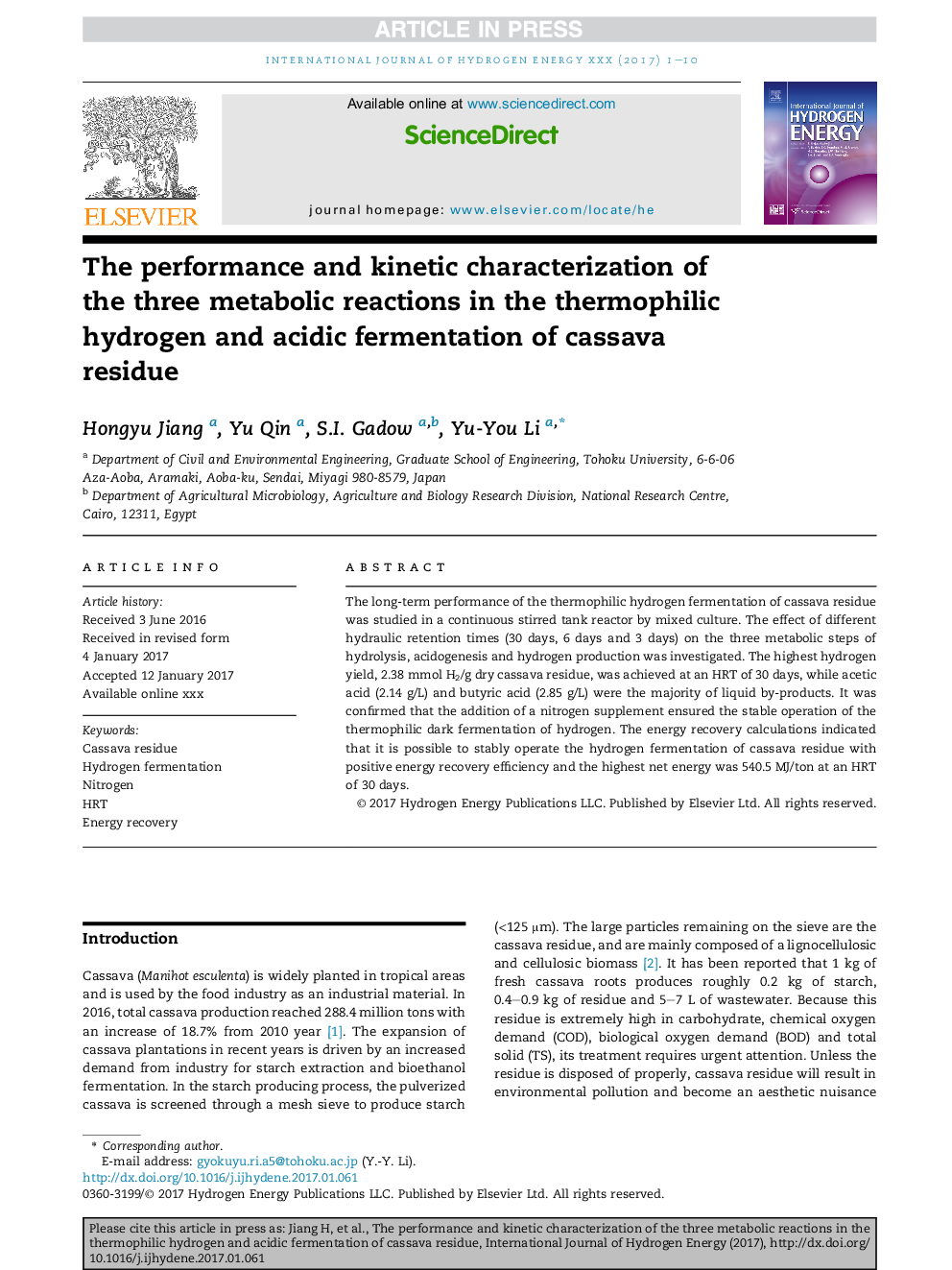| Article ID | Journal | Published Year | Pages | File Type |
|---|---|---|---|---|
| 5148497 | International Journal of Hydrogen Energy | 2017 | 10 Pages |
Abstract
The long-term performance of the thermophilic hydrogen fermentation of cassava residue was studied in a continuous stirred tank reactor by mixed culture. The effect of different hydraulic retention times (30 days, 6 days and 3 days) on the three metabolic steps of hydrolysis, acidogenesis and hydrogen production was investigated. The highest hydrogen yield, 2.38 mmol H2/g dry cassava residue, was achieved at an HRT of 30 days, while acetic acid (2.14 g/L) and butyric acid (2.85 g/L) were the majority of liquid by-products. It was confirmed that the addition of a nitrogen supplement ensured the stable operation of the thermophilic dark fermentation of hydrogen. The energy recovery calculations indicated that it is possible to stably operate the hydrogen fermentation of cassava residue with positive energy recovery efficiency and the highest net energy was 540.5 MJ/ton at an HRT of 30 days.
Related Topics
Physical Sciences and Engineering
Chemistry
Electrochemistry
Authors
Hongyu Jiang, Yu Qin, S.I. Gadow, Yu-You Li,
